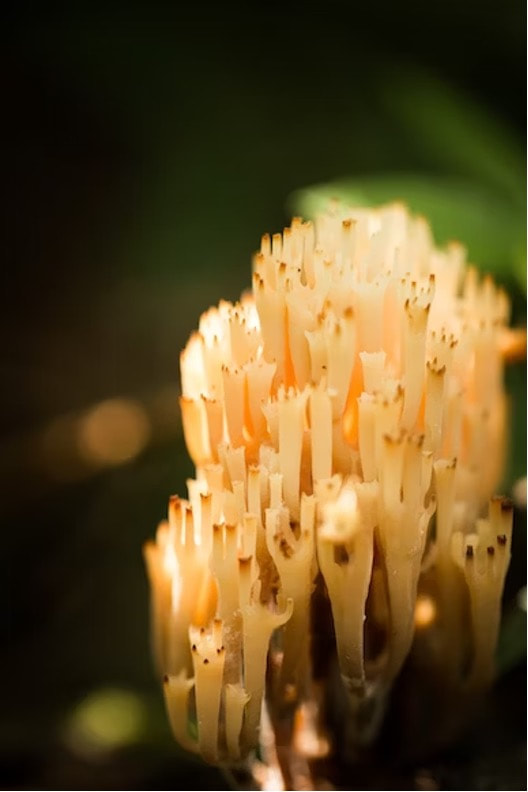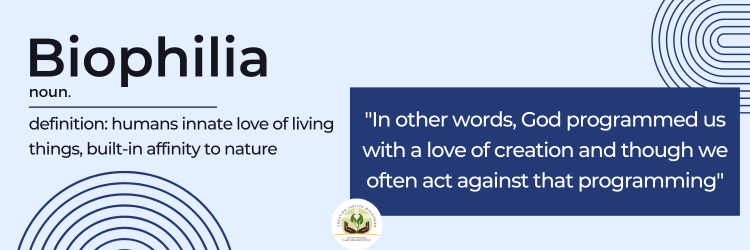|
by Colette Hehle
Fungi play a part in holding together the soil and the natural world, just as Jesus maintains the world of people, plants, and animals. Fungus is also crucial in that it consumes—and thus creates life from—dead and decaying matter. Without fungi (and bacteria) to facilitate the process of breaking down the dead, we would have no healthy space on earth to inhabit. Fungus is a little like God, in that it can “swallow up death” (NRSV, Isaiah 25:8) and facilitates the process of changing a body “from death to life” ( (NRSV John 5:24). We must also consider the miracle of mushrooms. When consumed by humans, mushrooms can be among the healthiest superfoods in the world. Used in traditional medicine across the globe but especially in Traditional Chinese Medicine (TCM), some mushroom species have been proven to increase immune response and even help prevent certain types of cancer. Other types of fungi are even found in the human body, supporting crucial natural systems, such as digestion, even though we are unaware of their presence. Recently, scientists have even discovered that certain mushrooms (in this case the “special” ones), are able, in conjunction with talk therapy, to help people through illnesses such as PTSD and major depression. While God is so much more than a fungus, the similarities between fungi and the divine are worth some reflection. After all, a fungus stretching nearly four miles across Oregon was only recently usurped as the largest living organism in the world. It has been alive for several thousand years, enduring fire, drought, storms, and change. Watching, listening, and tasting this part of God’s creation can teach us something about the Divine–the Divine that connects, restores, heals, and endures. Resources Books: Phillips, Michael. Mycorrhizal Planet: How Symbiotic Fungi Work with Roots to Support Plant Health and Build Soil Fertility. Vermont: Chelsea Green Publishing, 2017. Lowenfels, Jeff. Teaming with Fungi: The Organic Grower's Guide to Mycorrhizae. Oregon: Timber Press, 2017. Articles: Williams, Liam. “The Magic of Mycelium: Understanding Fungi’s Role in Our Ecosystems.” TheGreenTemple.net, 2023. https://thegreentemple.net/articles/mycelium-the-future-is-fungi/ Bogdanowicz, Richard. “Mycelium and Fungi.” The Permaculture Research Institute. January 2017. https://www.permaculturenews.org/2017/01/06/mycelium-and-soil/
0 Comments
by Derrick Weston Last year, I stumbled upon a new word, “biophilia”. Biophilia is defined as humans’ innate love of living things, a built-in affinity to nature. The Biophilia hypothesis, put forward by Harvard entomologist Edward O. Wilson, states a belief that humans evolved as creatures deeply enmeshed with the intricacies of nature and that this affinity remains ingrained in our DNA. In other words, God programmed us with a love of creation and though we often act against that programming, it’s clear that the healthiest versions of ourselves are often found outdoors. What I find most fascinating about the biophilia hypothesis is that it is not limited to any one race or culture. All humans have this innate love of the natural word. Furthermore, we all suffer when we are separated from creation. In his book “Lost Connections: Uncovering the Real Causes of Depression and the Unexpected Solutions” , Johann Hari lists disconnection with nature as one of the elements of the Western world that has led to increasing levels of depression and anxiety. I think we all know this on some level, probably on the same cellular level where our biophilia resides. What gets lost in this conversation at times is the role that race plays in our ability to access nature and therefore enjoy it. Dr. Carolyn Finney wrote a book provocatively titled “Black Faces, White Space: Reimagining the Relationship of African Americans to the Great Outdoors”. In this dense doctoral work, Dr. Finney argues that people of color, and specifically Black people, have the same love of the outdoors that white people have but outdoor spaces have become racialized largely through a history of them being unsafe for Black people. The stereotypes of Black people not camping, swimming, hiking, etc… so often come from legacies of Black people not being permitted in natural spaces or of those spaces being unsafe for us. Dr. Finney argues that people of color, and specifically Black people, have the same love of the outdoors that white people have but outdoor spaces have become racialized largely through a history of them being unsafe for Black people. The stereotypes of Black people not camping, swimming, hiking, etc… so often come from legacies of Black people not being permitted in natural spaces or of those spaces being unsafe for us. Dr. Finney concludes that while ecological organizations are almost exclusively staffed by white people at the executive levels, Black people have deep concerns about the state of creation that often go unheard or are eclipsed by other issues that are more deeply associated with racial justice.
If in fact all of God’s people are made with in an innate desire to both be in and care for nature, then it is important that all of God’s people, regardless of race, have safe access to the beauties of the natural world. It is also important that people of color have a seat at the table as ecological issues are discussed and as plans for creation’s care are made. This is especially true as we see climate change having disproportionate impacts on communities of color around the world. For it to truly reflect the values of God’s Reign, creation justice space cannot be exclusively white space. That means that those of us people of color who care about these issues must speak up more frequently and that those who are most often in control of the conversation need to make more space for our voices to be heard. |
About this BlogThis blog shares the activities of Creation Justice Ministries. We educate and equip Christians to protect, restore, and rightly share God's creation. Archives
July 2024
Categories
All
|
Photo from johndillon77



 RSS Feed
RSS Feed